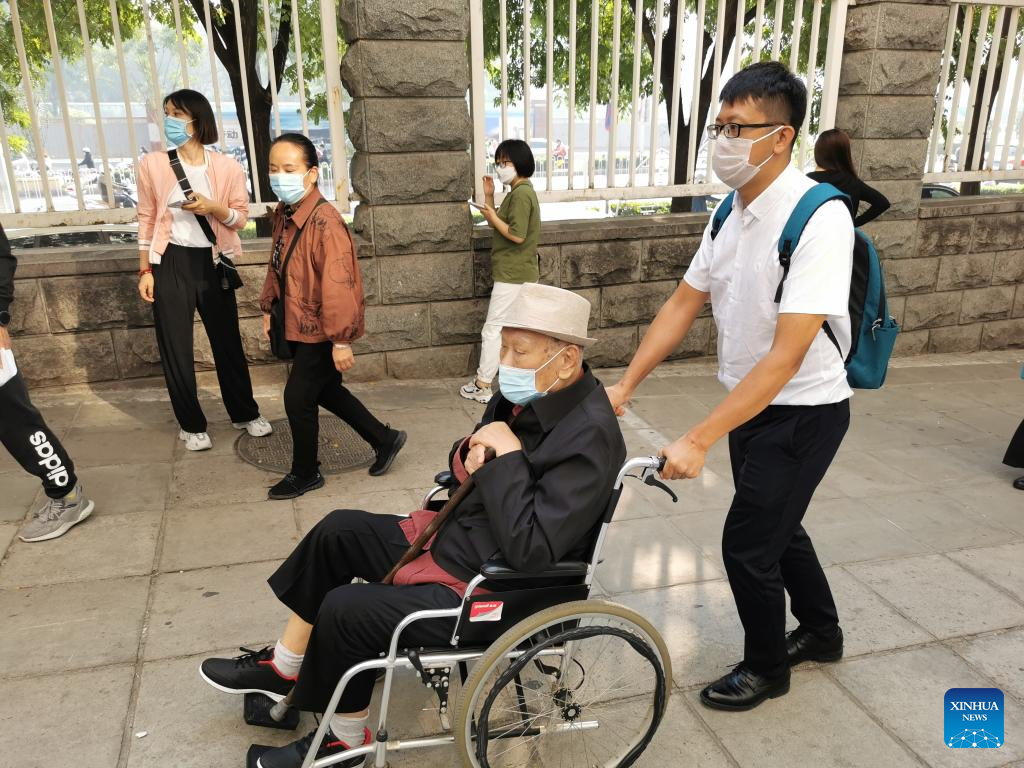Care manager helps improve China's home-based elderly care
 0 Comment(s)
0 Comment(s) Print
Print E-mail Xinhua, October 4, 2022
E-mail Xinhua, October 4, 2022

Chang Hao, a care manager or "nursing housekeeper" in Beijing, gets up at 5 a.m. and immediately starts his working day, which begins with an early meeting with a client.
About 20 km from where Chang lives, 92-year-old Mu Kunlai is waiting at home. Chang will accompany Mu to a pre-surgery checkup at the hospital in preparation for eye surgery the next day.
It is an important day for Mu, but also typical of the work performed by Chang in his role as care manager.
Mu has lived alone for nearly 20 years and normally has a caregiver to look after him. However, with his caregiver away for family reasons, Mu has been struggling, particularly with several hospital visits ahead of his operation.
"I didn't know what to do, but the community staff helped me contact this care manager, which solved my urgent needs," said Mu.
As part of his role, Chang also assessed Mu's medication condition and found him a nursing aide who was able to help with his diet and daily needs and provide physical rehabilitation.
This is the eighth year that Chang has been providing services for the elderly. As a "nursing housekeeper" with a pilot home-based elderly care service program to be launched in Beijing, he has become a link between older people and elderly care businesses.
The job of care managers involves a wide range of responsibilities, including booking transport, helping clients with registration and queueing, and assisting them in undergoing checkups, as well as generally providing companionship.
Official data shows that by the end of 2021, China had 267 million people aged 60 and above, or 18.9 percent of the total population, while those aged 65 and above accounted for over 14 percent of the population.
Due to the traditional Chinese culture, most of the aged in China prefer to be cared for at home, and the demand for services related to home care has grown over the years.
In Beijing, only 1.1 percent of the elderly live in nursing homes, while 98.9 percent live at home. Even for those elderly people who cannot take care of themselves, most still prefer home care.
"We hope that through the intermediate link provided by care managers, older people who really need it can enjoy professional elderly care services," said Guo Hanqiao, an official with Beijing municipal civil affairs bureau.
For Chang, the service has been of great benefit to clients, filling gaps in the overall elderly care system.
"We may face a lot of unexpected problems in our service, but I believe we can meet the needs of the elderly and be their companions," said Chang.






Go to Forum >>0 Comment(s)